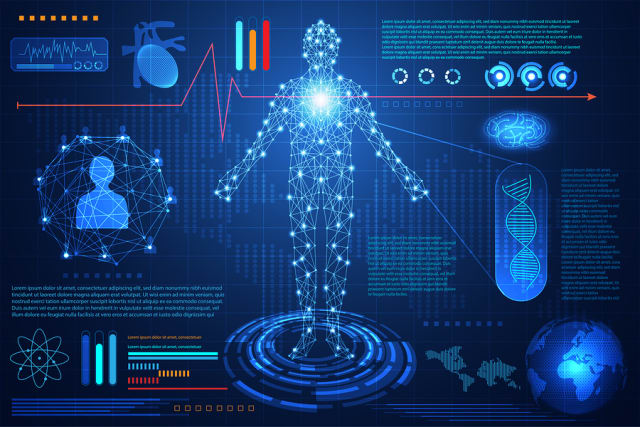Introduction:
In recent years, the integration of Artificial Intelligence (AI) has revolutionized various industries, and the healthcare sector is no exception. Nigeria, as a rapidly developing nation, has witnessed a significant impact of AI in personalized healthcare and telemedicine services. The application of AI technology has improved patient care, diagnostic accuracy, and accessibility to medical expertise, ultimately leading to better healthcare outcomes. This article explores the transformative power of AI in Nigeria’s healthcare system and its implications for personalized healthcare and telemedicine services.
Enhancing Diagnostic Accuracy:
AI-powered systems have demonstrated remarkable accuracy in diagnosing various medical conditions. In Nigeria, AI algorithms have been deployed to analyze medical imaging data such as X-rays, MRIs, and CT scans, aiding healthcare professionals in detecting abnormalities and diseases at an early stage. These advanced AI systems can assist radiologists and clinicians by providing precise and timely diagnostic insights, leading to improved treatment planning and patient outcomes.
Personalized Treatment Plans:
AI has the potential to revolutionize personalized healthcare by analyzing vast amounts of patient data and generating tailored treatment plans. With electronic health records (EHRs) becoming more prevalent in Nigerian healthcare institutions, AI algorithms can effectively mine these records for patterns and trends. By integrating patient data, medical history, genetic information, and other relevant factors, AI can generate personalized treatment plans that consider individual patient characteristics, optimizing the chances of successful outcomes.
Remote Patient Monitoring:
Telemedicine services have gained significant momentum in Nigeria, especially in remote areas with limited access to healthcare facilities. AI plays a crucial role in telemedicine by enabling remote patient monitoring. Wearable devices and sensors equipped with AI algorithms can collect real-time patient data, such as heart rate, blood pressure, and blood glucose levels. This data is then transmitted to healthcare professionals who can remotely monitor patients’ health conditions and intervene promptly if any concerning trends or abnormalities are detected. This approach improves patient safety, reduces hospital readmissions, and enhances overall healthcare efficiency.
Virtual Consultations and AI Chatbots:
AI-powered chatbots have become increasingly popular in Nigeria’s healthcare landscape. These chatbots can provide basic medical advice, answer frequently asked questions, and help patients navigate healthcare services. AI chatbots offer a convenient and accessible means of obtaining healthcare information, particularly in scenarios where physical access to medical professionals is limited. Moreover, virtual consultations enabled by AI technology allow patients to consult with doctors remotely, minimizing travel costs and increasing access to medical expertise, especially for individuals residing in rural areas.
Disease Surveillance and Outbreak Prediction:
AI has proven instrumental in disease surveillance and outbreak prediction, contributing to proactive healthcare management. By analyzing data from various sources, including social media, news articles, and healthcare records, AI algorithms can identify patterns and detect early signs of disease outbreaks. In Nigeria, AI-driven disease surveillance systems can help authorities and healthcare organizations take timely preventive measures, allocate resources effectively, and mitigate the spread of infectious diseases.
Conclusion:
The integration of AI in personalized healthcare and telemedicine services has had a profound impact on Nigeria’s healthcare system. From enhancing diagnostic accuracy to facilitating remote patient monitoring, AI technology is transforming the way healthcare is delivered and improving patient outcomes. As Nigeria continues to embrace AI in healthcare, it is vital to ensure proper data privacy, security, and ethical considerations. With further advancements and collaborations, the potential of AI in personalized healthcare and telemedicine services in Nigeria is vast, promising a future of improved healthcare access, quality, and efficiency.



